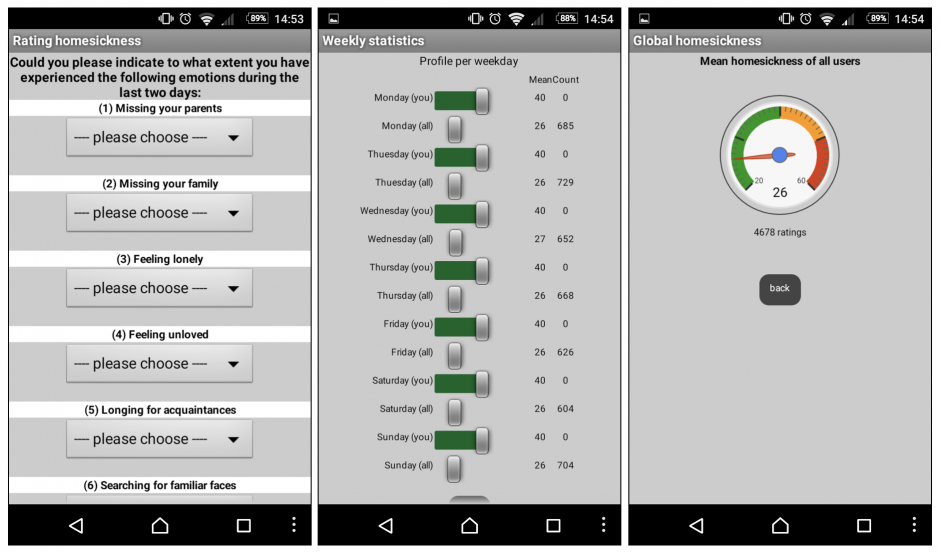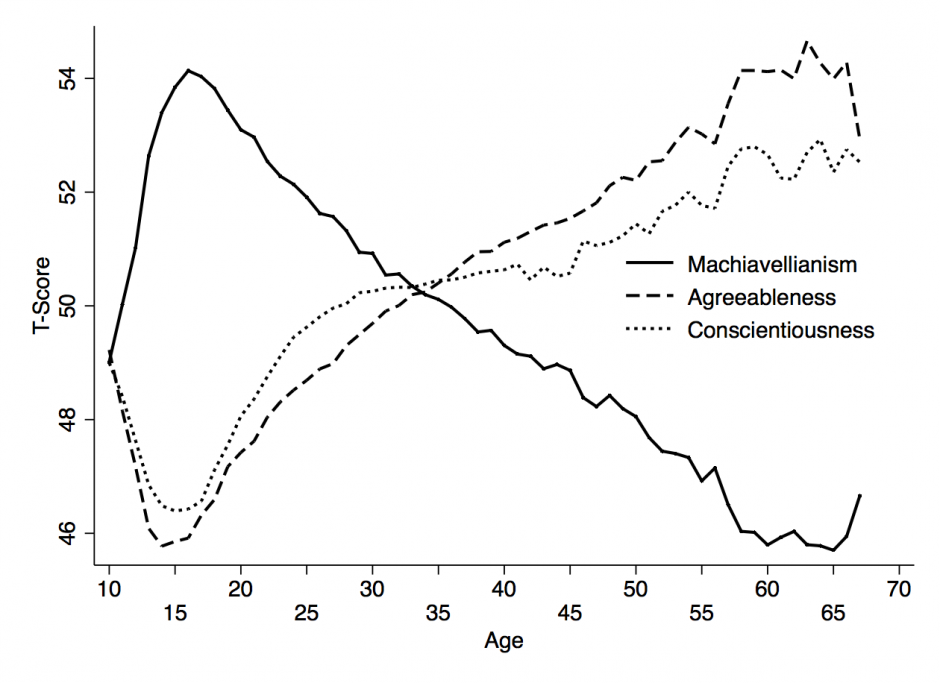At the Personality and Geographical Ambiance (PANGEA) Lab, we are passionate and curious about all things personality and geography. Below is a summary of some of the areas and projects we are currently working on.
Regional Personality Differences

Our primary research interests lie at the nexus of people and places and most of our work aims to investigate the causes and consequences of spatial differences in psychological characteristics (e.g., personality traits and values). Applying classic interactionist theories from social and personality psychology to real-world settings, we adopt pursue two integrated streams of research: On the micro-level, we study how distinct regional psychological profiles emerge and shape individual cognitions, behaviours and emotions (e.g., personal spending and well-being). On the macro-level, we research how regional psychological profiles shape an area’s social, political and economic climate and affect relevant macro-level outcomes (e.g., suicide prevalence, election results and start-up rates). On the theoretical level, we have worked together with geographers to design and develop a unifying conceptual framework that integrates geography and psychology. Finally, on a methodological level, we have written several tutorials on how to conduct psychological research with spatial data, as well as how to draw pretty and informative maps.
Select PANGEA Publications:
- Götz, F. M., Montello, D. R., Varnum, M. E. W., Luca, D., & Kenrick, D. T. (2025). A unified framework integrating psychology and geography. Nature Human Behaviour. https://doi.org/10.1038/s41562-025-02237-y
- Peters, H.*, Götz, F. M.*, Ebert, T.*, Müller, S. R., Rentfrow, P. J., Gosling, S. D., Obschonka, M., Ames, D., Potter, J., & Matz, S. C. (2023). Regional personality differences predict variation in early COVID-19 infections and mobility patterns indicative of social distancing. Journal of Personality and Social Psychology, 124(4), 848–872. https://doi.org/10.1037/pspp0000439
- Ebert, T.*, Götz, F. M.*, Mewes, L.*, & Rentfrow, P. J. (2023). Spatial analysis for psychologists: How to use individual-level data for research at the geographically aggregated level. Psychological Methods, 28, 1100–1121. https://doi.org/10.1037/met0000493
- Ebert, T.*, Götz, F. M.*, Gladstone, J. J., Müller, S. R., & Matz, S. C. (2021). Spending reflects not only who we are but also who we are around: The joint effects of individual and geographic personality on consumption. Journal of Personality and Social Psychology, 121(2), 378–393. https://doi.org/10.1037/pspp0000344
- Götz, F. M.*, Ebert, T.*, Gosling, S. D., Obschonka, M., Potter, J., & Rentfrow, P. J. (2021). Local housing market dynamics predict rapid shifts in cultural openness: A 9-year study across 199 cities. American Psychologist, 76(6), 947–961. https://doi.org/10.1037/amp0000812
- Götz, F. M., Stieger, S., Gosling, S. D., Potter, J., & Rentfrow, P. J. (2020). Physical topography is associated with human personality. Nature Human Behaviour, 4(11), 1135–1144. https://doi.org/10.1038/s41562-020-0930-x
Personality Beyond the Big Five

The Big Five are wonderful – they truly are! And they are not all there is to personality (nor do they claim to be). In the PANGEA Lab we have an inclusive approach to everything, including how to conceptualise and measure personality and its most basic building blocks. In this line of work, we move beyond these broadband dimensions of personality to zoom in on other relevant parts of humans’ characters that, we find, are often uniquely relevant to some of the big puzzles of our times.
In particular, in recent years, we have conducted research on the psychology of zero-sum mindsets (i.e., seeing the world in general as a place where one person’s gains must always come at somebody else’s expense), greed (i.e., experiencing an insatiable desire to get more), and misinformation susceptibility (i.e., falling prey to fake news and other manipulation strategies), among others. In this process, we have developed various new assessment tools, from a greed dictionary to the misinformation susceptibility test (MIST) and a scale to measure dominant cultural work ideals – and looked at the prevalence, and consequences of these phenomena across diverse life domains.
Select PANGEA Publications:
- Andrews Fearon, P., & Götz, F.M. (2024). The zero-sum mindset. Journal of Personality and Social Psychology, 27(4), 758–795. https://doi.org/10.1037/pspa0000404
- Maertens, R.*, Götz, F. M.*, Schneider, C. R., Roozenbeek, J., Kerr, J. R., Stieger, S., McClanahan, W. P., Drabot, K., & van der Linden, S. The misinformation susceptibility test (MIST) (2024): A psychometrically validated measure of news veracity discernment. Behavior Research Methods, 56, 1863–1899. https://doi.org/10.3758/s13428-023-02124-2
- Mercadante, E. J., & Tracy, J. L., & Götz, F. M. (2023). Greed communication predicts the approval and reach of US senators’ tweets. Proceedings of the National Academy of Sciences, 120(11). https://doi.org/10.1073/pnas.2218680120
Methods & Practices in Psychological Science

This line of work is all about the How of our research. There is so much We (i.e., all psychologists) have yet to learn here and even more (much more), that we (i.e., the PANGEA Lab) have to learn here. In the meantime, we try to learn from our failures, shares our modest wins, and work with others to figure out how to do our best science – one project at a time.
Amongst others, in this stream of research we have chased the answers to questions such as: (1) how should we measure, interpret and report our effects, which effects matter, and who gets to decide this? (2) how can we integrate the advent of AI and LLMs into our research workflow without sacrificing its very essence and the qualities that make us researchers?
In other related research, we love to try our hand at new ways of collecting, analysing, and showcasing data. Amongst others, we use longitudinal surveys and science apps to track and analyse people’s experiences over time as they live through important events or formative times. The windows we look at range from hours – such as how fans’ emotions fluctuate as they watch their national soccer team compete at the World Cup – to years – such as how homesickness emerges and develops in exchange students abroad – and they almost always teach us something new and interesting.
Select PANGEA Publications:
- Götz, F. M.*, Maertens*, R., Loomba, S., & van der Linden, S. (2024). Let the algorithm speak: How to use neural networks for automatic item generation in psychological scale development. Psychological Methods, 29(3), 494–518. https://doi.org/10.1037/met0000540
- Götz, F. M., Gosling, S. D., & Rentfrow, P. J. (2024). Effect sizes and what to make of them. Nature Human Behaviour. https://doi.org/10.1038/s41562-024-01858-z
- Götz, F. M., Gosling, S. D., & Rentfrow, P. J. (2022). Small effects: The indispensable foundation for a cumulative psychological science. Perspectives on Psychological Science, 17(1), 205–215. https://doi.org/10.1177/1745691620984483
- Götz, F. M.*, Stieger, S.*, Ebert, T., Rentfrow, P. J., & Lewetz, D. (2020). What drives our emotions when we watch sporting events? An ESM study on the affective experience of German spectators during the 2018 FIFA World Cup. Collabra, 6. https://doi.org/10.1525/collabra.262
- Götz, F. M., Stieger, S., & Reips, U. D. (2019). The emergence and volatility of homesickness in exchange students abroad: A smartphone-based longitudinal study. Environment and Behavior, 51(6), 689–716. https://doi.org/10.1177/0013916518754610
Personality Development across the Life-Span

A fourth interest of our revolves around age-graded personality differences and individual psychological development across the lifespan. Here, we harness large-scale datasets to shed light on how previously understudied personality characteristics – including malevolent traits, such as Machiavellianism and benevolent traits, such as Humility – change over the course of our lives. In another project, we use machine learning techniques to zoom in on personal value and investigate which aspects of our value systems are most malleable to change and how change varies from very broad to very specific personal values.
Select PANGEA Publications:
- Cheung, W. W. L.*, Sahakari, S. S.*, & Götz, F. M. (2025). Humility throughout the lifespan and a global pandemic: Evidence from a large‐scale cross‐sectional study. Journal of Personality. https://doi.org/10.1111/jopy.70002
- Gvirtz, A.*, Montecchi, M., Selby, A. & Götz, F. M.* (2025). Human values throughout the lifespan: Developmental trends at three hierarchical levels and what we can learn from them. Personality and Social Psychology Bulletin. https://doi.org/10.1177/01461672241312570
- Götz, F. M., Bleidorn, W., & Rentfrow, P. J. (2020). Age differences in Machiavellianism across the lifespan: Evidence from a large‐scale cross‐sectional study. Journal of Personality, 88(5), 978–992. https://doi.org/10.1111/jopy.12545
This is only a sample of the research we do in our lab. For a full list of publications visit Dr Götz’ Google Scholar profile.